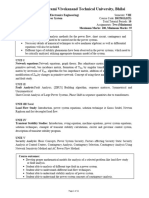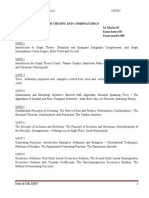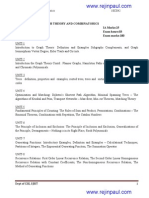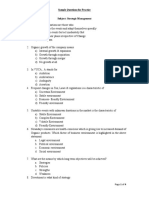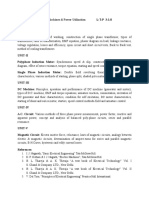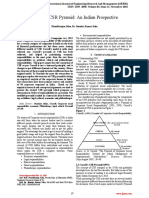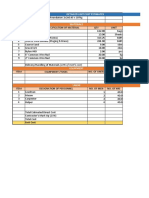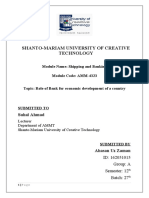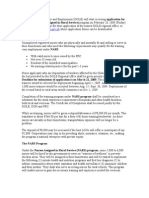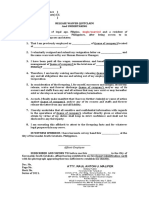0% found this document useful (0 votes)
84 views8 pagesSyllabus
This document outlines the syllabus for the first semester of a management program. It includes 8 courses that cover topics such as creative problem solving, organization management, quantitative methods, marketing management, managerial accounting, managerial economics, computer laboratory focusing on statistics, and systems thinking. The courses are divided into modules that delve deeper into specific aspects of each topic.
Uploaded by
Ajit KumarCopyright
© Attribution Non-Commercial (BY-NC)
We take content rights seriously. If you suspect this is your content, claim it here.
Available Formats
Download as PDF, TXT or read online on Scribd
0% found this document useful (0 votes)
84 views8 pagesSyllabus
This document outlines the syllabus for the first semester of a management program. It includes 8 courses that cover topics such as creative problem solving, organization management, quantitative methods, marketing management, managerial accounting, managerial economics, computer laboratory focusing on statistics, and systems thinking. The courses are divided into modules that delve deeper into specific aspects of each topic.
Uploaded by
Ajit KumarCopyright
© Attribution Non-Commercial (BY-NC)
We take content rights seriously. If you suspect this is your content, claim it here.
Available Formats
Download as PDF, TXT or read online on Scribd
/ 8


